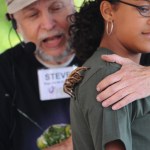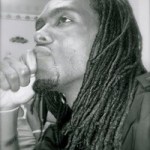Education
It's funny what inspires one toward a career in science or engineering.
Kary Mullins who earned the Nobel Prize in Chemistry in 1993, says it was the experience of growing up in the rolling foothills of the Blue Ridge Mountains in North Carolina that did it for him. There, in a more simple and idyllic time than today, he had the freedom to build and launch his own rockets, and to dream while exploring the biodiversity in the woods, the swamp and the orchards near his home.
Inspiration and the chance to discover are important for all of us. Like with Kary Mullins, these experiences plant…
Image by Joseph Hewitt of Ataraxia Theatre.
Archaeology is a famously ghoulish pursuit whose practitioners are always on the look-out for dead bodies to gloat over. If we can't find a grave, then at least we'll try to get hold of animal bones from kitchen middens and sacrificial deposits. I've seen desperate Mesolithic researchers cackle with funereal glee over the toe bones of long-dead seals. Osteologists are of course the worst necrophiliacs of the lot. But nobody's immune. There's an anecdote going around about my old favourite teacher, where he lifts a pelvis out of a Middle Neolithic…
One of the most interesting sessions at the NSF IGERT 2010 Project Meeting was a panel of men and women who participated in the IGERT program as students and are now working in a variety of different careers. The point of the panel was to hear about the ways that they felt their experiences as IGERT trainees prepared them for their current positions, as well as to identify aspects of their current jobs where more preparation might have been helpful.
The session was moderated by Judy Giordan (President and Co-Founder, Visions in Education, Inc.). The IGERT alums who participated in the…
Continuing with the uncomfortable questions, H asks a good one:
Union is one of the most expensive colleges in the country. What are students getting for their money? How does Union justify the increase in price over other schools with comparable academics and facilities?
See, now that's an uncomfortable question, especially on an institutional level.
Stripped down to the most basic level, and stated as bluntly as possible, students at an elite private liberal arts college are paying for three things: faculty/facilities, individual attention, and connections.
Faculty and facilities are the…
Let's face it, we as a society have a limited, even poor, image of scientists and engineers. For instance, just ask the average fifth-grader to draw his or her perception of a scientist and you'll most likely be given a depiction of a white male with wild Einstein-like hair, eccentric habits and attired in a lab coat, coke-bottle spectacles while working in an ivory tower laboratory...some might even describe him as "mad."
Science's poor public image goes even deeper. In a survey conducted in 2007 by the Museum of Science and Industry in which 1,304 American adults were asked if they…
Reuters Health Executive Editor and proprietor of the excellent Embargo Watch blog, Ivan Oransky, was kind to alert me to this topical paper that appeared in Monday's issue of Annals of Internal Medicine entitled, The Social Mission of Medical Education: Ranking the Schools.
To the credit of the Annals, the full text of the primary article is currently free. An accompanying editorial is behind the subscription wall.
The study was conducted led by Fitzhugh Mullan with Candice Chen, MD, Gretchen Kolsky, and Michael Spagnola from the Department of Health Policy at the George Washington…
In the 18 years from my first faculty appointment, one of the most satisfying parts of the journey has been watching students come through my life who you can tell - you just "know" - are going to make a huge difference in the world. (I previously wrote of one of these here, Arizona clinical pharmacist, Sandra Leal, PharmD.)
Well, two years ago, I was at the kickoff of a Juneteenth celebration at my new institution and was immediately drawn to this striking young man who, after speaking with him for a spell, convinced me that he was going to be one of these kinds of students.
It's not just…
In continuing our discussion of the Centennial HBCU Symposium held June 3-4 in Research Triangle Park, NC, I wanted to briefly follow up a theme that emerged several times across the diverse talks.
Outside of a high dropout rate, a major challenge to African-American students succeeding in universities is poor preparation in math skills from high schools. Of course, this is not just a problem of this demographic but, sadly, is a major challenge we see everywhere in the US and has been especially evident in our ScienceBlogs annual support of the DonorsChoose project.
This point seems obvious…
As launched with yesterday's post, we'll be spending this week presenting my impressions of a symposium held on June 3-4, 2010, entitled, "Setting the Agenda for Historically Black Colleges and Universities." Sponsored by North Carolina Central University, one of five HBCUs in the University of North Carolina system, this gathering of national education leaders culminated a year long celebration of the centennial of the 1910 founding of the institution by businessman, teacher, and pharmacist, Dr. James E. Shepard.
A native of Raleigh, Shepard earned a Ph.G. in pharmacy (the original pharmacy…
NCCU Centennial HBCU Symposium - Setting the Agenda for Historically Black Colleges and Universities
On June 3rd and 4th, I had the pleasure of attending a fabulous program on the modern role and future sustainability of historically Black colleges and universities (HBCUs) in the United States. The HBCU Symposium: Setting the Agenda for Historically Black Colleges and Universities was the culmination of the 100th anniversary of the founding of North Carolina Central University (NCCU).
NCCU is one of five HBCUs in the University of North Carolina system and among 11 such institutions of higher learning in the state (list and links here). I currently serve on the faculty of this institution…
Reposted from Business Wire
WASHINGTON--(BUSINESS WIRE)--In a massive effort to ignite a passion for science and engineering in middle and high school students, the USA Science & Engineering Festival will send more than fifty top scientists and engineers into local schools this October 10-24, 2010. The hope is that meeting scientists and engineers who love what they do, will help students embrace these disciplines and consider careers in them.
The Nifty Fifty, as they are called, were carefully chosen from hundreds of applicants for their differing fields, talents, divergent backgrounds…
A few years ago, the Discovery Institute set up laboratory to do research, the Biologic Institute, which is in principle a good thing — they do claim to want to take a scientific approach to understanding the origin of life, after all. So far, it's been less than spectacular. They published one paper on software that models encoding Chinese characters as an analogy to protein folding. It's mildly interesting, but its connection to intelligent design is tenuous and abstract, and it's not at all clear how they can use it to expose problems in evolution…and even if they do find a problem in…
Will New York Rebel Against Fracking? - Green Blog - NYTimes.com
"A well blowout that shot gas and water polluted with drilling fluids as high as 75 feet into the air in Pennsylvania is a vivid reminder how a new generation of gas drilling is becoming more of a presence in the Northeast.
Discussion of whether the main result will be jobs and royalty payments or environmental degradation still remains surprisingly below the radar screen in New York State, aside from the upstate communities that will probably be affected. But the issues are already a huge fact of life just across the Delaware…
So I'm turning over the California/NPG situation in my head, because I—okay, because I'm obsessive, are you happy now? (Just don't ask how late I was sending email last night.)
The very cynical portion of my brain notes that it's almost certainly easier to persuade faculty to inaction than action. California didn't try to use this crisis to convince faculty to self-archive; that's work, that is, and the tie between self-archiving and dealing with NPG's extortionate tactics is weakly evident at best. California merely told faculty "don't work for NPG." Less work! Cheers! they appear to have…
Economic recovery has not yet made its presence felt at public universities in California. (Indeed, at least in the California State University system, all things budgetary are going to be significantly worse in the next academic year, not better.)
This means it's not a great time for purveyors of electronic journals to present academic libraries in public university systems with big increases in subscription prices. Yet Nature Publishing Group has, apparently, done just that by some 400%. And, as noted by Christina Pikas and Dorothea Salo and Jennifer Howard in The Chronicle of Higher…
On the heels of the recruitment of Deborah Blum to ScienceBlogs, I am happy to welcome journalist Maryn McKenna to our neck of the ether.
Her inaugural post can be read here.
McKenna's blog is called Superbug, reflecting the title of her most recent book, SUPERBUG: The Fatal Menace of MRSA, and her general interests in infectious diseases and food safety. Her 2004 book, BEATING BACK THE DEVIL: On The Front Lines with the Disease Detectives of the Epidemic Intelligence Service (of the US Centers for Disease Control and Prevention), named among Top Science Books of 2004 by Amazon.com and an "…
Continuing with the tradition from last two years, I will occasionally post interviews with some of the participants of the ScienceOnline2010 conference that was held in the Research Triangle Park, NC back in January. See all the interviews in this series here. You can check out previous years' interviews as well: 2008 and 2009.
Today, I asked Fenella Saunders from The American Scientist to answer a few questions.
Welcome to A Blog Around The Clock. Would you, please, tell my readers a little bit more about yourself? Where are you coming from (both geographically and philosophically)? What…
A while back, I gave a keynote talk at an evo-devo conference, and one of the things I told them was that public outreach was important, and one tool to get your message out was blogging. Telling that to a mob of working scientists who have other pressing matters occupying them is dangerous, but I also told them of one easy way to spread the word about science: make your students do it, and coopt existing educational frameworks to make it happen. The specific suggestion I made was that graduate student journal clubs should be drafted to make writing a blog entry about that week's paper a part…
I've had a lot of fun thus far this week expressing more than a bit of schadenfreude over Andrew Wakefield's being ignominiously stripped of his medical license in the U.K. by the General Medical Council, not to mention pointing out the quackfest that is Autism One, I feel the need for a brief break from the anti-vaccine craziness. This is as good a time as any to take care of some leftover business from last week that I had planned on writing about but gotten distracted by all the deliciously bad news for the anti-vaccine movement. Besides, what will be going on in Grant Park in Chicago this…
Continuing with the tradition from last two years, I will occasionally post interviews with some of the participants of the ScienceOnline2010 conference that was held in the Research Triangle Park, NC back in January. See all the interviews in this series here. You can check out previous years' interviews as well: 2008 and 2009.
Today, I asked Karyn Hede to answer a few questions:
Welcome to A Blog Around The Clock. Would you, please, tell my readers a little bit more about yourself? Where are you coming from (both geographically and philosophically)? What is your (scientific) background?
I…




